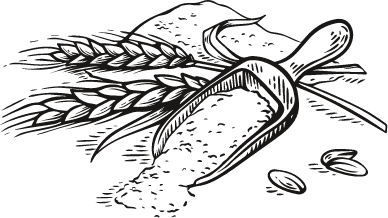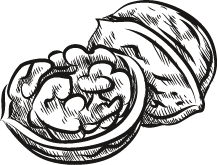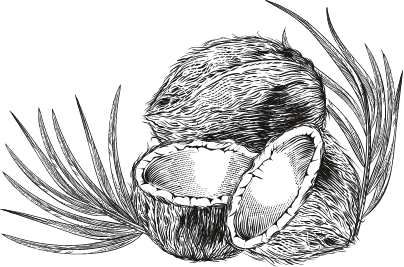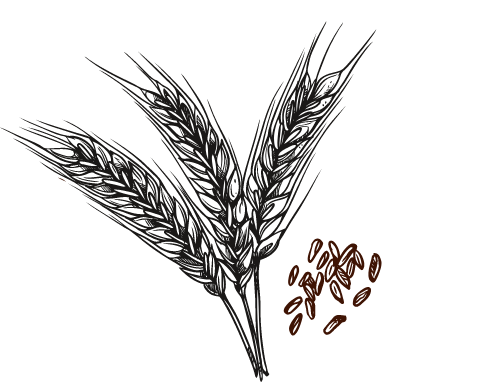
Stress is one of the salts of life. In small doses, it enhances our daily life to appreciate all its flavour. In an avalanche, it eclipses everything until it makes us sick. And naturopathy has key assets to deal with stress effectively.
First of all, what is stress?
Stress is the set of reactions produced by the organism in a conflicting physical or psychological situation. It was defined by the Quebec physician Hans Selye in the 1920s, who spoke of a "general adaptation syndrome".
Stress can be broken down into 3 phases:
- The alarm phase: the body is on the alert in order to deal with a new situation
- The resistance phase: the situation is chronic or prolonged, the body draws on its reserves to remain alert
- The exhaustion phase: drained, exhausted, the body gives in (burn out, physical injury, etc.)
A stressed body will secrete numerous hormones such as cortisol, adrenaline, oxytocin or vasopressin. During the alarm phase, these hormones allow us to surpass ourselves to be safe, to be stronger, more enduring, more alert, simply more "capable" than we are in normal times.
What are the long-term effects of stress?
We have all experienced the negative effects of stress on our bodies at some point. They vary from person to person, from situation to situation, and sometimes go unnoticed...
- Fatigue
- Weight gain or loss
- Disturbed sleep or insomnia
- Digestive problems
- Muscle tension or pain
- Peroxidation (accelerated oxidation of cells)
- Anxiety and nervousness
- Concentration and learning disabilities
- High blood pressure or palpitations
- Weakened immunity
- Spasms
Is stress a friend or an enemy?
To understand the place of stress in our lives, we could compare it to the salt of life. It is vital to add a touch of it to our lives, but when it is present in excess, it masks the taste of other foods, we feel nothing but it and we end up getting sick.
Hans Selye himself summed up the subtlety of stress in two quotes:
"Every stress leaves an indelible scar, and the organism pays for its survival after a stressful situation by becoming a little older."
"To be totally stress-free is to be dead."
Since a stress-free life is impossible and for our own sake, we might as well prevent rather than cure.
Nutrition as a response to stress
An individualised diet
Creating a plate adapted to your lifestyle is the first response to stress to be put in place. This means adapting your diet according to whether you are sporty, sedentary, pregnant, etc.
Of course, it's a question of having a plate adapted to our body and our tastes. Not everyone can digest cabbage or legumes, not everyone can eat quantities of raw fruit every day, etc. And of course: not everyone has the same tastes! That's why following the latest diet cut out of the latest health magazine or duplicating the same diet method advised by your colleague for yourself is often counterproductive and ultimately demotivating.
Organic and/or local food
Organic food guarantees a better supply of nutrients: vitamins, amino acids, minerals, etc. while avoiding a large proportion of pesticides, antibiotics, etc.
In fact, organically grown food contains on average 63% more calcium, 73% more iron, 118% more magnesium, 60 to 80% more vitamin C, etc.
While also having 50% less cadmium (a heavy metal that accumulates in the liver and kidneys), 4 times less pesticide residues and 10 to 27% less nitrite and nitrate...
Finally, it allows you to live your plate with the rhythm of the seasons and to enjoy food that tastes better, quite simply!
A measured diet
One last point to understand if you want to cope with stress : a body that is in the midst of digestion is less able to cope with stress. Our vital energy cannot be everywhere at once, it's as simple as that.
Therefore, implementing wellness gestures such as drinking water, not snacking between meals, indulging yourself while eating a varied and balanced diet to never get bored are all anti-stress gestures.
Avoiding repeated caloric overload allows you to eat to your hunger, to regain energy and to protect yourself from many diseases of civilisation.
Nutrients to include in your anti-stress plate
- The vitamins of group B, act on the nervous system: meat, eggs, fish, hazelnuts, lentils, mushrooms, sesame, chestnuts
- Essential fatty acids that are not manufactured by the body, including omega-3: vegetable oils of flaxseed, perilla, cameline, small oily fish (sardine, mackerel...)
- Minerals and trace elements to help the body cope: magnesium, iron, potassium, phosphorus, zinc or selenium...
Focus on anti-stress plants
The bud of fig tree
This anti-stress bud is a regulator of the nervous system.
It helps to fight against stress, anxiety (syndrome of the small bicycle in the head) while harmonizing our digestion and our emotional, including emotional eating.
Linden bud
This bud soothes the nerves, promotes sleep and calmness. It helps to calm anxiety and acts on digestive or cardiac disorders.
Lemon balm
Well known, lemon balm soothes spasms and nerves. It helps with anxiety, nervousness, restlessness, sleep disorders, digestive spasms, palpitations or painful periods.
Oats
Oats strengthen the nervous system and, even though this plant is not often mentioned, it has been used for centuries against fatigue, anxiety, convalescence, sleep disorders, etc.
RECIPE: a delicious anti-stress herbal tea to make yourself
In a loose bag/tea box :
- 1/4 OAT (cut aerial parts)
- 1/4 LINDEN (bracts)
- 1/4 LEMON (leaves)
- 1/4 LAVENDER (dried flowers)
Drink 1 to 2 cups per day in periods of stress / nervousness.
Alternative medicines to help the stressed body
Many alternative medicines help the body to cope with stress and, above all, to curb harmful chronic stress. They complement and harmonise with each other, alone or alongside traditional medicine.
- Personal development to better understand our defence patterns, with a life coach or a sophrologist
- Relaxation of the body, through massages, osteopathy, micro-physiotherapy
- Taking into account the body and mind with new lifestyle habits, thanks to a naturopath.









